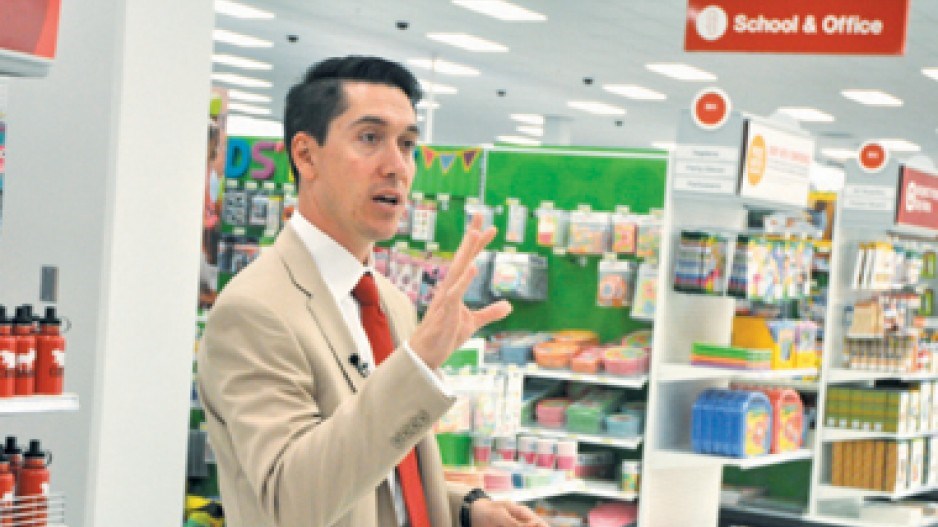Executives at large U.S. retail chains are likely to make a template out of Target Corp.'s (NYSE:TGT) strategy for how to roll out 124 stores across Canada by the end of 2013.
The key will be deep pockets.
Target paid Hudson Bay Co. $1.825 billion for what turned out to be 189 Zellers lease agreements.
Target then sold 39 of those leases to Walmart Canada. Remaining leases that Target will not use for its planned 124 store openings were either sold to other retailers or returned to landlords.
Target then started spending what will be about $1.3 billion to rebuild its new locations.
"The incremental approach of locating one store and then expanding your distribution network by one store each time you expand is so costly and time consuming," said James Smerdon, vice-president and director of retail consulting at Colliers International.
"There also might not be the real estate available."
Wal-Mart Stores Inc. (NYSE: WMT) was a trend-setter for this strategy when it bought most of Woolco's 120 Canadian stores in 1994 and immediately had a significant Canadian footprint.
Dollar Tree, Inc. (Nasdaq:DLTR) spent $62 million in October 2010 to buy Vancouver-based dollar-store chain Dollar Giant, which then had 86 stores.
Dollar Tree has since rebranded those stores and expanded by opening a further 50 stores, Dollar Tree president Joseph Calvano recently told Business in Vancouver. He added that the company continues to have an ambitious expansion plan.
Target's expansion is much larger than Dollar Tree's, however. Target plans to employ 25,000 staff by the end of the year and 99% of those hires will be local job seekers, Tony Fisher told the Vancouver Board of Trade at a May 6 luncheon.
"It took us nearly 50 years to establish a coast-to-coast presence in the U.S. and we're doing that here in less than three years," Fisher said.
"We set out on this journey a couple years ago with the goal of achieving a retail expansion with unprecedented scope and scale."
All Canadian Target stores will carry the full range of products offered at the company's more than 1,800 U.S. locations, except for alcohol. There will also be some regional variation to cater to customer demographics.
"We will have differentiated assortment of products in certain categories, especially food," Fisher told BIV following his address.
"Think about things like steamers and rice cookers. We're overinvesting in things like that in Vancouver versus the rest of the chain."
Public reaction to Target's arrival has tended to be positive, indicating that consumer attitudes have evolved since Walmart's early days in Canada.
Walmart faced fierce union opposition and controversial public hearings as it increased its store count to what is now more than 300 Canadian locations.
Smerdon chalks that up to Walmart being the pioneer.
"Walmart was seen as an invader," Smerdon said.
"They were the first discount U.S. brand to be coming in and Canadians hadn't had a positive experience with a large U.S. chain yet. Had Target been the first to come to Canada, there would have probably been a similar reaction."




